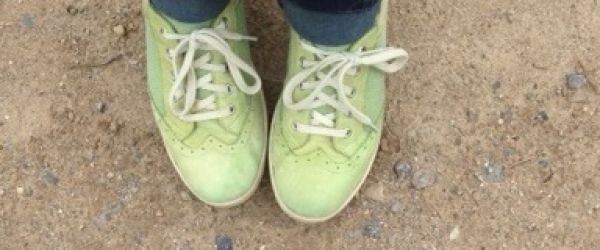
Short-term missions: The dirt wall
By a short-term missionary — I had let the dirt build a wall between us. These wonderful people had opened up their home for us to stay in, but I had kept myself cold and distant.
Sure, I had been to dirtier places before—homes in garbage dumps where the smell is overpowering. But in those places, I stood outside the dilapidated houses, safe in the yard. I rarely went inside and even then, never sat down.
But here I was, staying in this home for the week. It was a two-bedroom plywood structure. It had a bathroom but no shower. The hole in the bathroom wall near the ceiling allowed for ventilation but also allowed for the escape of sounds and smells. The tiny kitchen was crammed into a corner of the main room. There was no hot water. The floor was gritty with dirt and crunched when you walked. The seating consisted of the backseat of a minivan, a few metal folding chairs, and an overturned paint bucket with dried blood on the side.
When we first entered, I was reluctant to even sit down. Even after walking around the village all day, when my feet were tired and sore, I perched uncomfortably on the edge of a metal folding chair. That night I laid stiff and straight on the stained foam mattress, praying I wouldn’t pick up some kind of infestation or disease. I kept thinking I could feel something crawling in my hair.
During the day, there was a constant stream of people through the house. I had thought that we would have the place to ourselves, just the four of us, while we were in the village. Instead, the house was packed with people. I shared a bedroom with two other people I had just met. Relatives were around all day long and even after midnight. The door stayed open all day as people from the village, and sometimes even a dog or two, wandered in and out.
My gracious hosts could tell I wasn’t at ease. Eventually, looking for some excuse for my cold behavior, they asked if I don’t sit down much at home. I made some excuse about concentrating on something else but I knew in my heart that it was the dirt that kept me away.
Their simple question got to me. It was a mirror that reflected back my shabby behavior that week. I was like a moody teenager, refusing to engage. I sat there with my arms crossed and my laptop screen cutting off any possible eye contact. When they invited me to join them at the community steam bath, I said no, missing out on a great cultural opportunity. And even though we had lived together in tight quarters for several days, I had made no effort to get to know my hosts. I even missed the fact that the grandma had been sleeping on a foam mattress in the living room in order to make room for us.
My unwillingness to get comfortable on the furniture reflected my unwillingness to get comfortable with the people. I resented the way they lived and allowed that to shape my attitude toward the people themselves. I looked at the dirt instead of appreciating their sacrifice in letting us stay there, instead of recognizing the cleaning they had done to prepare for our arrival, instead of marveling at their ingenuity in making the most of meager resources.
I made excuses to myself, saying I was only there to observe their culture. In reality, I was just trying to justify my feelings of superiority. How foolish I was. My hosts didn’t want an observer, they wanted a participant.
So in that moment, with that small comment about how little I sat down, God graciously slapped me in the face. I was one of the very few Jesus followers these people had ever met and I was blowing it.
So what now? I still had a full day and a half left—there was still time. I made a conscious effort to let my guard down and get comfortable with the people. I plopped myself down on the dirty seats next to them. I stopped worrying about how and when I could get a shower. I sat down on the dirty floor to eat with them. I identified with them as I walked around with dirty clothes and unwashed hair but a smile on my face. I embraced the dirt, which allowed me to embrace the people.
Yes, I was only there for a week, a short blip of time in the grand scheme of things. But by the end of my time there, those strangers had become friends. We shared jokes and food and memories. They even gave me some beautiful, handmade traditional shirts. Those shirts are hanging in my closet, unwashed, as a reminder to not let minor differences hinder my engagement with the people God loves.
After all, the gospel is worth getting dirty for.
- Find out how you can serve short-term with SEND.
- Explore short mission trips
through SEND.
- Find a missions internship.
- Subscribe to Explore , our free monthly newsletter full of inspiration, ideas, and encouragement for people interested in discovering their role in cross-cultural missions.
Additional Posts





